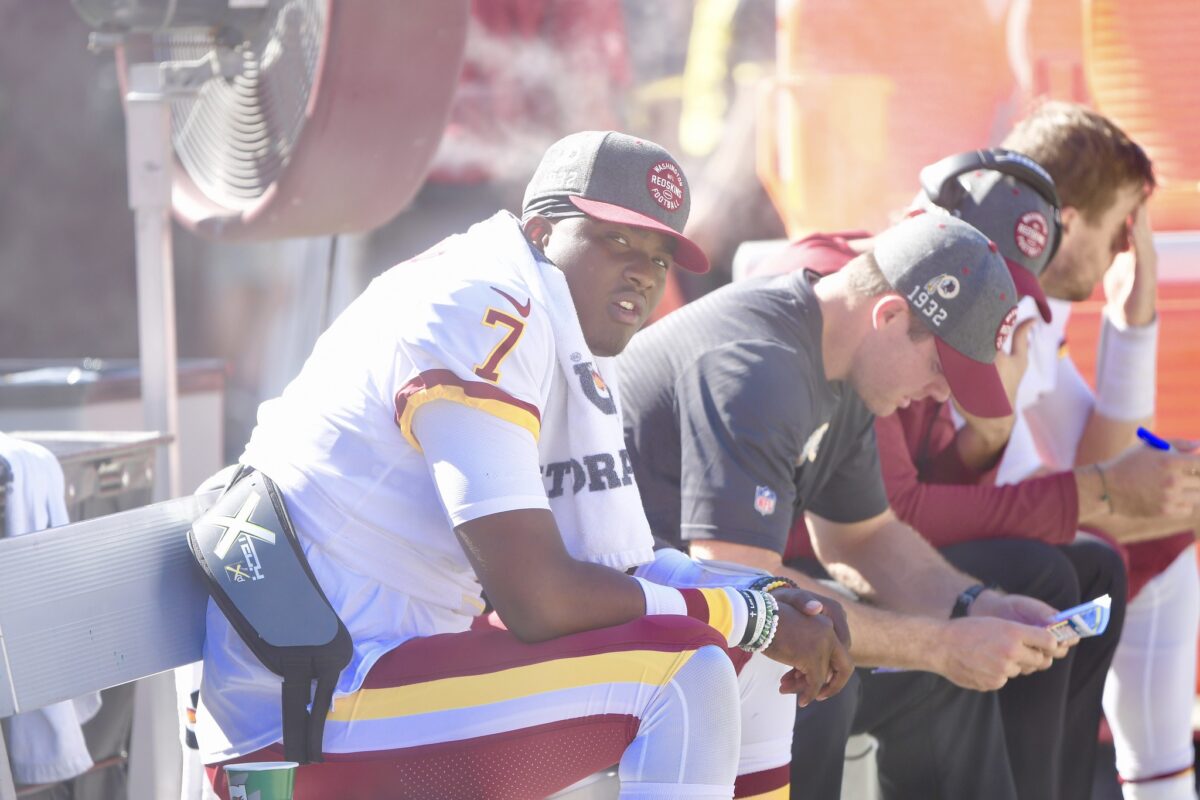It is rare to see a sports agent make a public announcement when cutting ties with a professional athlete. Typically, an athlete will send a letter to the agent indicating that their professional relationship is terminated and ultimately sign a new agent with a relative lack of fanfare. However, every so often an agent will release a statement with the intention of making the public aware of the split.
That rare moment occurred yesterday, on December 30, when David Mulugheta, Athletes First President of Team Sports, tweeted information about the end of his agent-player relationship with recently turned free-agent quarterback Dwayne Haskins.
“Dwayne is a great young man with whom I wish I could have continued to work with. Yet the decision was made that a fresh start would be in Dwayne’s best interest. I wish him nothing but success moving forward and will continue to root for him.”
David Mulugheta (@DavidMulugheta) on December 30, 2020.
Mulugheta’s tweet came two days after Haskins also tweeted a statement, but one that was in the form of an apology.
“My time with the WFT has unfortunately come to an end. I thank the team & fans for the opportunity to play for the team I grew up rooting for. I take full responsibility for not meeting the standards of a NFL QB & will become a better man & player because of this experience[.]”
Dwayne Haskins, Jr (@dh_simba7) on December 28, 2020.
Agents rarely want to bring this type of public attention to themselves and thus will only disseminate tweets like this when they believe that the specific situation warrants such a statement. In fact, agents will rarely even use their personal accounts to share the information, instead relying on writers with reach such as ESPN’s Adam Schefter.
For instance, Schefter broke the news in November 2018 that Mulugheta terminated his relationship with wide receiver Michael Thomas. Mulugheta and Thomas since rekindled their relationship. In January 2020, Schefter announced that Drew Rosenhaus conditionally terminated his relationship with Antonio Brown. The same was true in April 2016 when Rosenhaus and Johnny Manziel parted ways. Note that these are high-profile names and Haskins, a first-round selection only two years ago, falls within that same category.
Besides the notoriety of the individuals above, another thing in common concerning how and why an announcement was made on these players is the delicacy of their situations. It is apparent that the agents have a genuine care for the well-being of those individuals and, while they would like to see them rebound, they believe that a change is necessary not only out of self-interest but for the benefit of the players. A termination of the player-agent relationship, without the dissemination of a statement shedding some light on the situation, could lead to unnecessary scrutiny on the termination itself and on the player. As fiduciaries, that is the last thing that an agent wants to happen to a current and even a former client.
Perhaps that sheds some light on why Mulugheta chose to tweet out information about the end of his professional relationship with Haskins and why other agents will issue similar statements from time-to-time.
